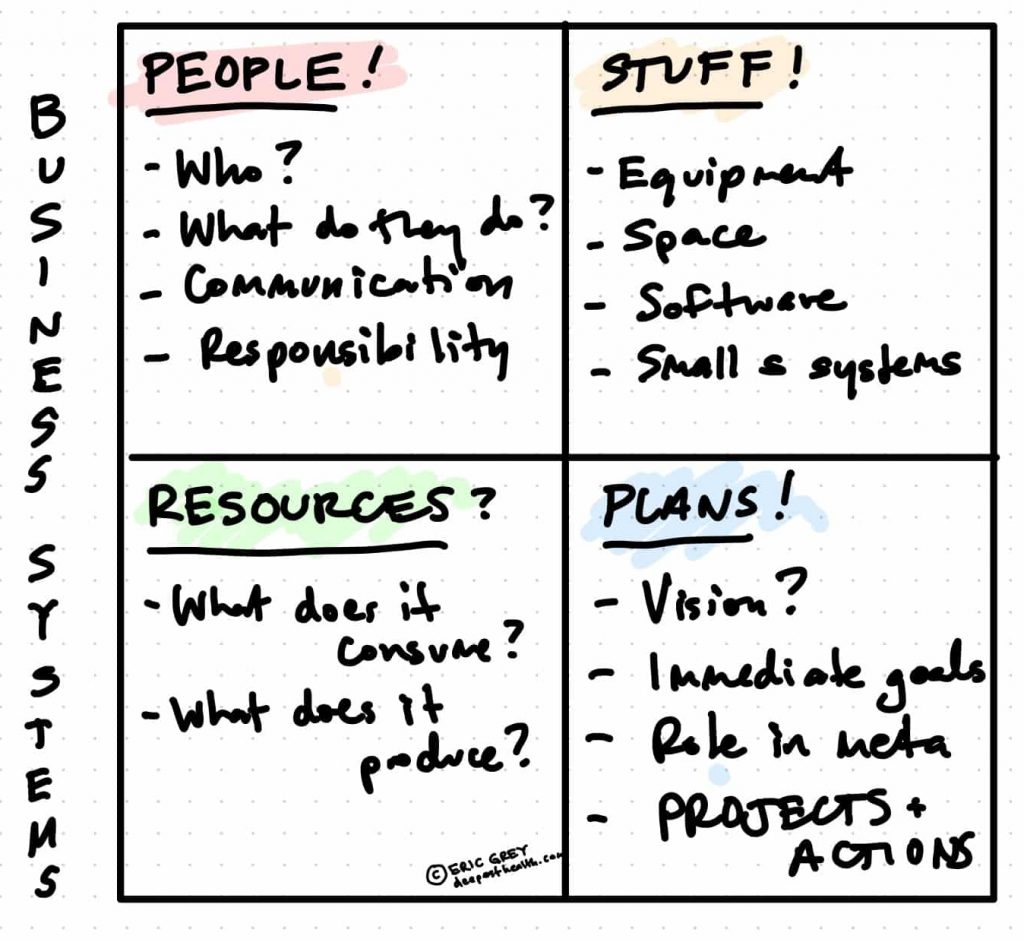Acupuncture practice management can be quite overwhelming, especially at first
I define overwhelm as a sense of not having the capacity to handle whatever it is we are facing because of its size, intensity, complexity or importance. Overwhelm comes with a variety of symptoms and signs varying, like anything, according to the person. Nearly everyone who is overwhelmed, though, finds their effective work capacity diminished. In the case of acupuncture practice management, overwhelm can not only impact the function of the business but also your capacity as an acupuncturist!
When I am overwhelmed, I cannot take in new information and I’m too exhausted to deal with whatever information I already have in hand.
I may know what I need to do, but feel powerless to do it. I am more negative about everything around me, failing to see the good in even the best parts of my life. I can be a real bear when overwhelmed, as I tend not to take care of myself, and this reduces my ability to be compassionate. I’m sure many of you can relate! While your manifestation of overwhelm may differ from mine, one thing is clear, it’s a suboptimal state from which to engage in acupuncture practice management.
A few times a year, I am contacted by an upset former student or colleague who is talking about quitting the Chinese medicine profession.

In every single one of these cases, the root cause of their distress is that they are simply overwhelmed. This heightened state had caused them to lose sight of why they were doing what they were doing, what they liked about it, and most of all, it made it too difficult for them to see how to change their situation.
I mentioned that the overwhelmed feeling is triggered in response to a situation that overcomes our capacities in terms of its size, intensity, complexity or importance. With acupuncture businesses, all four elements are likely contributors. Acupuncture practice management is indeed a big, intense, complex and important domain. Despite this – we can systematically address overwhelm and restore balance to the situation. How?
How can we face the reality of the big, intense, complex and important task of building a resonant acupuncture business without being crushed by overwhelm?
If you do a quick search, you’ll find lots of proposed solutions for dealing with feelings of overwhelm. The vast majority of the resources focus on self-care solutions for the symptoms of overwhelm. For instance, the use of tapping or breathing techniques to help regulate stress response – making the mind clearer and the heart calmer. There are also some teachers who focus on the use of organization and productivity methods (like GTD) to approach work in a way that minimizes the conditions that produce overwhelm.
Self-care techniques that help to mitigate symptoms of stress can be very helpful, particularly when overwhelm is acute.
For those of us that are more sensitive to stress, whether because of a temporary situation or an underlying constitution, having a quiver of tools and strategies to ensure a more placid and approachable experience is absolutely necessary.
However, for me and my acupuncture practice, I want to take a step beyond symptom alleviation.

While getting out of the overwhelmed state is critically important, I also want to do my best to address the situation that is creating those feelings in the first place. In the case of overwhelm because of some major illness or world event, that’s generally not feasible. Mitigation strategies are what we have in those cases, and we execute those to the best of our ability.
But in acupuncture practice management, we absolutely *can* deal with the fundamental issues that are elevating us into an overwhelmed state. With the right approach, and enough gentleness with our process, even the most tangled, emotional, no-good situation can be comprehended, considered, and addressed.
The strategy I have developed for dealing with overwhelm in my business relies on my understanding, analysis and subsequent use of a conceptual structure of five business systems.

These systems form the foundation of my thinking and teaching about acupuncture practice management. Each system represents about 1/5 of the total structures, people, tools, strategies and functions in an acupuncture clinic, and all the systems interrelate holistically. In this way, thinking of the systems as similar to ecosystems can be useful. I’m proposing, then, that every acupuncture business is composed of five interrelating ecosystems.
Five is a useful number, but breaking a complex business down into just five portions isn’t always going to be a useful conceptual tool. Because of this, I’ve created subcategories for each system – four for the executive and two for the rest of the systems. These twelve aspects are a finer grained tool and, yes, align with the 12 organ systems.
I have been working with a model like this since we started Watershed Wellness in 2009 – sometimes more explicitly and sometimes less.
I lean on it particularly heavily when facing big difficulties in the business that seem to have emotional content – situations that quickly become overwhelming. Using the five systems model helps me to get a quick handle on what I’m facing, reminds me of my commitments and orientation regarding each major part of my business, and then suggests ways of moving forward towards resolution.
In the next article, begin your exploration of the business systems and what value they have in acupuncture practice management, by learning more about the Executive System – associated with the phase element of Fire.

[…] I discussed this issue in the first article of this series – and mentioned that the way I approach these moments is by leveraging the use of “business systems.” I define a business system as one of five holistic networks of people, structures, spaces, procedures, tools, strategies, tactics and energies that comprise a healthy functioning acupuncture business. […]